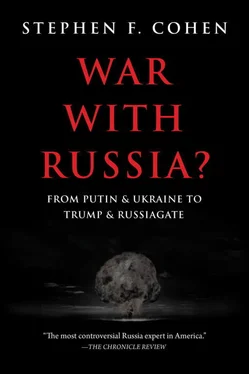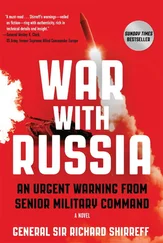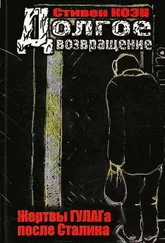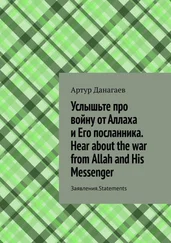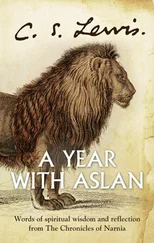That Russia’s political elite has long had this same menacing view of US intentions makes it no less true—or any less consequential. Formally announcing the annexation of Crimea on March 18, 2014, Putin vented Moscow’s longstanding resentments. Several of his assertions were untrue and alarming, but others were reasonable, or at least understandable, not “delusional.” Referring to Western, primarily American, policy-makers since the 1990s, he complained bitterly that they were “trying to drive us into some kind of corner,” “have lied to us many times,” and in Ukraine “have crossed the line.” Putin warned, “Everything has its limits.”
The Détente Imperative and Parity Principle
April 14, 2015
(Adapted from a talk given in Washington, DC, on March 26, 2015.)
WHEN I SPOKE AT THIS FORUM nine months ago, in June 2014, I warned that the Ukrainian crisis was the worst US-Russian confrontation in many decades. It had already plunged us into a new (or renewed) Cold War potentially even more perilous than its forty-year US-Soviet predecessor…. I also warned that we might soon be closer to actual war with Russia than we had been since the 1962 Cuban Missile Crisis.
Today, the crisis is even worse. The new Cold War has been deepened and institutionalized by transforming what began, in February 2014, as essentially a Ukrainian civil war into a US/NATO-Russian proxy war; by a torrent of inflammatory misinformation out of Washington, Moscow, Kiev, and Brussels; and by Western economic sanctions that are compelling Russia to retreat politically, as it did in the late 1940s, from the West.
Still worse, both sides are again aggressively deploying their conventional and nuclear weapons and probing the other’s defenses in the air and at sea. Diplomacy between Washington and Moscow is being displaced by resurgent militarized thinking, while cooperative relationships nurtured over many decades, from trade, education, and science to arms control are being shredded. And yet, despite this fateful crisis and its growing dangers, there is still no mainstream debate about, still less any effective political opposition to, the US policies that have contributed to it.
Indeed, the current best hope to avert a larger war is being assailed by political forces, especially in Washington and in US-backed Kiev, that seem to want a military showdown with Russia’s unreasonably vilified president, Vladimir Putin. In February, German Chancellor Angela Merkel and French President Francois Hollande brokered in Minsk a military and political agreement with Putin and Ukrainian President Petro Poroshenko that, if implemented, would end the Ukrainian civil war.
Powerful enemies of the Minsk accord—again, both in Washington and Kiev—are denouncing it as appeasement of Putin while demanding that President Obama send $3 billion of weapons to Kiev. Such a step would escalate the war in Ukraine, sabotage the ceasefire and political negotiations agreed upon in Minsk, and possibly provoke a Russian military response with unpredictable consequences. While Europe is splitting over the crisis, and with it perhaps the vaunted transatlantic alliance, the recklessness in Washington is fully bipartisan, urged on by four all-but-unanimous votes in Congress.
* * *
A new Washington-Moscow détente is the only way to avert another prolonged and even more dangerous Cold War. For this, we must relearn a fundamental lesson from the history of the 40-year US-Soviet Cold War and how it ended, a history largely forgotten, distorted, or unknown to many younger Americans. Simply recalled, détente, as an idea and a policy, meant expanding elements of cooperation in US-Soviet relations while diminishing areas of dangerous conflict, particularly, though not only, in the existential realm of the nuclear arms race. In this regard, détente had a long, always embattled, often defeated, but ultimately victorious history.
Leaving aside the first détente of 1933, when Washington officially recognized Soviet Russia after fifteen years of diplomatic non-recognition (the first Cold War), latter-day détente began in the mid-1950s under President Dwight Eisenhower and Soviet leader Nikita Khrushchev. It was soon disrupted by Cold War forces and events on both sides.
The pattern continued for thirty years: under President John Kennedy and Khrushchev, after the Cuban Missile Crisis; under President Lyndon Johnson and Soviet leader Leonid Brezhnev, in the growing shadow of Vietnam; under President Richard Nixon and Brezhnev in the 1970s; and briefly under Presidents Gerald Ford and Jimmy Carter, also with Brezhnev. Each time, détente was gravely undermined, intentionally and unintentionally, and abandoned as Washington policy, though not by its determined American proponents. (Having been among them in the 1970s and 1980s, I can testify on their behalf.)
Then, in 1985, the seemingly most Cold War president ever, Ronald Reagan, began with Soviet leader Mikhail Gorbachev a renewed détente so far-reaching that both men, as well as Reagan’s successor, President George H.W. Bush, believed they had ended the Cold War. How did détente, despite three decades of repeated defeats and political defamation, remain a vital and ultimately triumphant (as it seemed at the time to most observers) American policy?
Above all, because Washington gradually acknowledged that Soviet Russia was a co-equal great power with comparable legitimate national interests in world affairs. This recognition was given a conceptual basis and a name: “parity.”
It is true that “parity” began as a grudging recognition of the US-Soviet nuclear capacity for “mutually assured destruction” and that, due to their different systems (and “isms”) at home, the parity principle (as I termed it in 1981 in a New York Times op-ed) did not mean moral equivalence. It is also true that powerful American political forces never accepted the principle and relentlessly assailed it. Even so, the principle existed—like sex in Victorian England, acknowledged only obliquely in public but amply practiced—as reflected in the commonplace expression “the two superpowers,” without the modifier “nuclear.”
Most important, every US president returned to it, from Eisenhower to Reagan. Thus, Jack F. Matlock Jr., a leading diplomatic participant in and historian of the Reagan-Gorbachev-Bush détente, tells us that for Reagan, “détente was based on several logical principles,” the first being “the countries would deal with each other as equals.”
Three elements of US-Soviet parity were especially important. First, both sides had recognized spheres of influence, “red lines” that should not be directly challenged. This understanding was occasionally tested, even violated, as in Cuba in 1962, but it prevailed. Second, neither side should interfere excessively, apart from the mutual propaganda war, in the other’s internal politics. This too was tested—particularly in regard to Soviet Jewish emigration and political dissidents—but generally negotiated and observed. And third, Washington and Moscow had a shared responsibility for peace and mutual security in Europe, even while competing economically and militarily in what was called the Third World. This assumption was also tested by serious crises, but they did not negate the underlying parity principle.
Those tenets of parity prevented a US-Soviet hot war during the long Cold War. They were the basis of détente’s great diplomatic successes, from symbolic bilateral leadership summits, arms control agreements, and the 1975 Helsinki Accords on European security, based on sovereign equality, to many other forms of cooperation now being discarded. And in 1985-1989, they made possible what both sides declared to be the end of the Cold War.
Читать дальше
